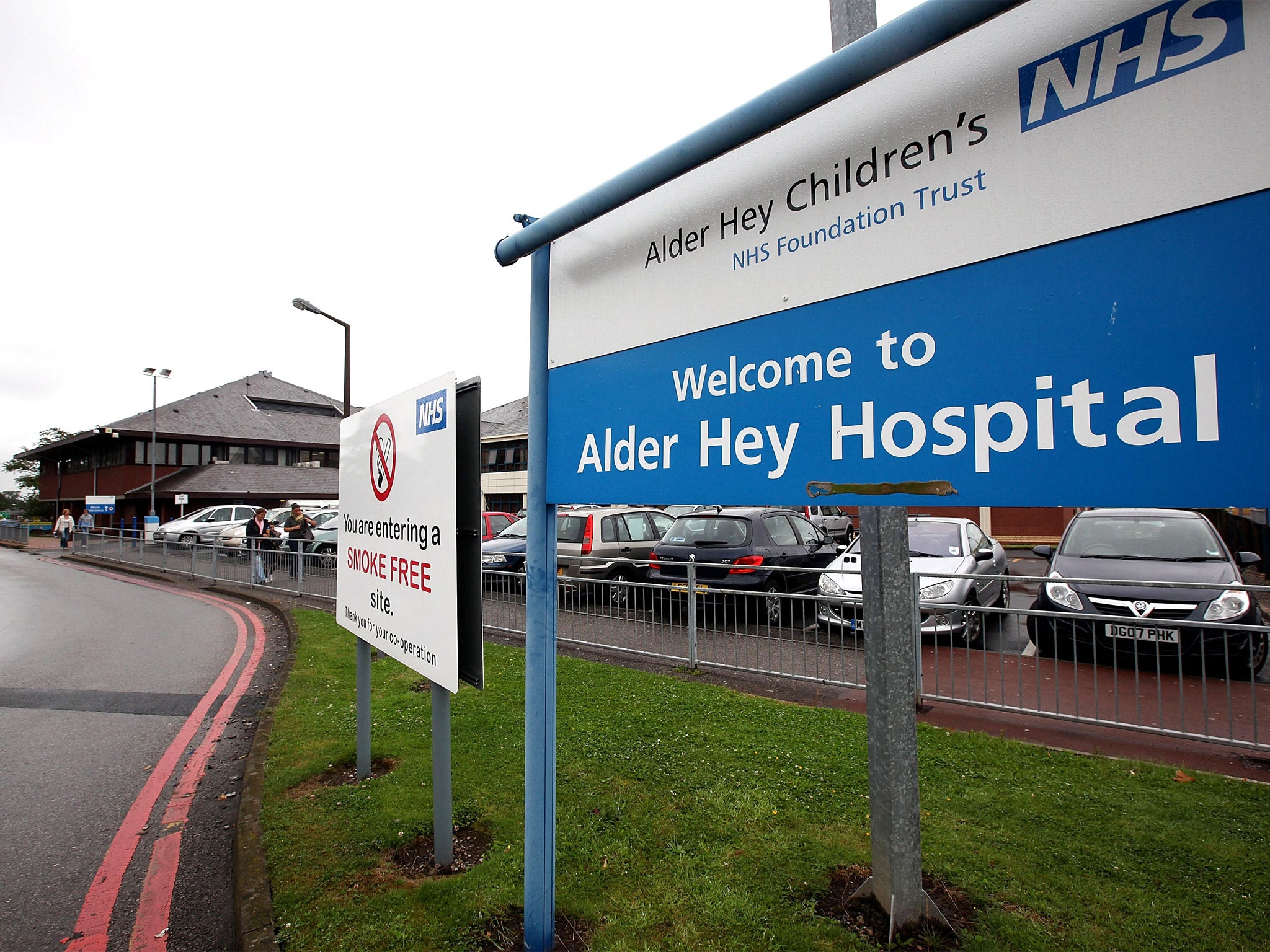Alder Hey's high-risk rating ‘has cost hospital millions’ and angered its bosses
The Trust's chairman claims the CQC ranking has threatened a £4m donation for essential equipment

Your support helps us to tell the story
From reproductive rights to climate change to Big Tech, The Independent is on the ground when the story is developing. Whether it's investigating the financials of Elon Musk's pro-Trump PAC or producing our latest documentary, 'The A Word', which shines a light on the American women fighting for reproductive rights, we know how important it is to parse out the facts from the messaging.
At such a critical moment in US history, we need reporters on the ground. Your donation allows us to keep sending journalists to speak to both sides of the story.
The Independent is trusted by Americans across the entire political spectrum. And unlike many other quality news outlets, we choose not to lock Americans out of our reporting and analysis with paywalls. We believe quality journalism should be available to everyone, paid for by those who can afford it.
Your support makes all the difference.A furious row over millions in lost donations and a PR “disaster” has erupted between Alder Hey Children's Hospital and the Care Quality Commission (CQC), after a damning risk rating angered hospital bosses.
In a new system to pinpoint areas of particular concern, the healthcare regulator recently introduced intelligent monitoring data which draws on information such as performance reports and the experiences of patients and staff.
And Alder Hey was placed in Band 1, a “potentially high risk” category.
But the rating came just days after the hospital had launched a major charity appeal last October.
And correspondence released in response to a Freedom of Information request reveals how Sir David Henshaw, chairman of Alder Hey Children's NHS Foundation Trust, told David Behan, chief executive of CQC, the publication of the rating was a “public relations disaster given that the week before we had launched our £30m charity appeal.”
In the letter, dated 1 November 2013, he added: “A sponsor who was about to donate £4m for essential equipment in our new hospital may not now proceed given the coverage.”
This had left the staff “bitterly disappointed at this, but also more fundamentally, at the huge damage to our reputation caused by the publication of inaccurate information.” Sir David demanded “at the very least” that the CQC “remove the Trust from the band we are in and most importantly, apologise for the reputational damage caused.”
But in a reply, dated 14 November, Mr Behan defended the new system as “transparent and suitable for its purpose.” Rather than apologising, he concluded: “We will not take any action or making [sic] any amendments to the indicators or associated risk banding for Alder Hey.”
The row continued today, with a spokesperson for Alder Hey stating the “disappointment and surprise” at the rating “given that none of the indicators flag any concerns whatsoever about patient safety or quality of care.”
They added: “We have shared with the CQC our concerns regarding aspects of the methodology behind this new rating system and continue to work closely with them on this.”
The spokesperson insisted: “There are no current concerns regarding patient safety at Alder Hey.”
As for the hospital's charity appeal, the suggested £4m donation has failed to materialise, and barely £1milion has been raised in the six months since it was launched.
The CQC is standing by the rating it has given Alder Hey. In a statement, a spokesperson said: “Having reviewed the Trust's concerns, we remain confident that our data supported placing the trust in band 1. The system is built on a set of indicators that look at a range of information including patient experience, staff experience and performance.” They added: “Alder Hey remains in band 1 as a result of additional areas where risk has been identified, specifically results from the recent NHS Staff Survey and referral to treatment times.”
A report published last month found Alder Hey “potentially unsafe” after it failed to meet four out of five safety and quality standards during an unannounced CQC inspection in December. It revealed how there had been “near misses” and “very worrying” staff shortages.
Peter Walsh from the patient safety charity Action Against Medical Accidents (AvMA) said: “It is a great shame if a potential sponsor for Alder Hey has dropped out, because organisations which come out high on the CQC risk assessment could do with more, not less help. However, the trust should get on with dealing with the identified issues of concern rather than having a tiff with the CQC.”
And Dr Kim Holt, from campaign group Patients First, commented: “Rather than worry about the reputation of the organisation, what Alder Hey need to focus on is patient safety.”
Join our commenting forum
Join thought-provoking conversations, follow other Independent readers and see their replies
Comments